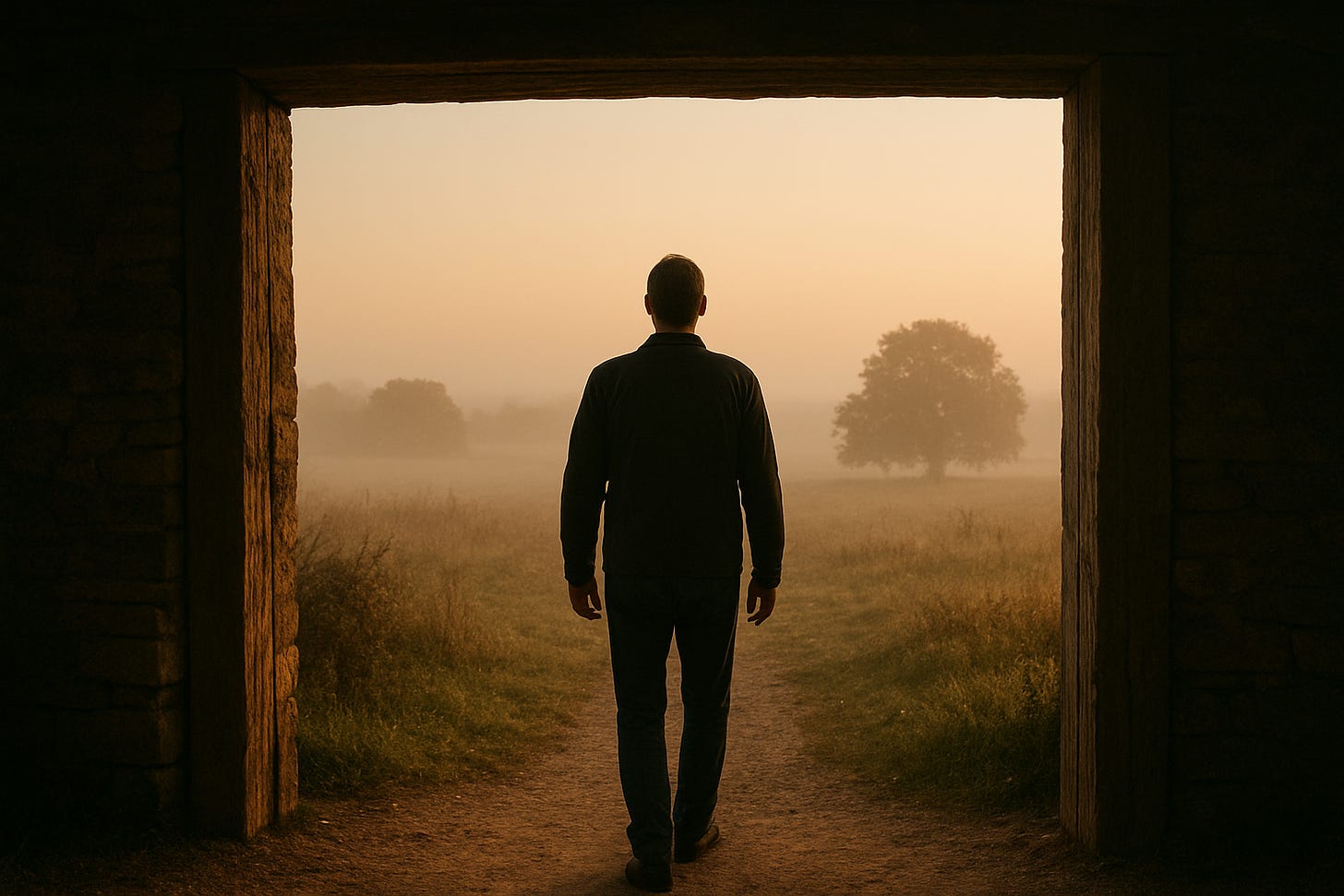Beyond Civilization: Navigating the Regenerative Turn Through Cosmo-Local Logics
Michel Bauwens has named something many of us feel but rarely frame with such precision: we are not merely at the end of an era—we are at the end of a civilizational logic.
In his recent piece, The Geopolitics of Cosmo-Localism, Bauwens invites us to see the unraveling not just through the lens of capitalism, or geopolitics, or climate, but as an overlapping collapse of multiple civilizational cycles—economic, cultural, institutional, spiritual. His synthesis draws on Kondratieff waves, the Fourth Turning, Toynbee’s civilizational dynamics, and Sorokin’s pendulum of material vs. spiritual culture. Each thread points to the same moment: a liminal phase, a civilizational intercycle, where the old cannot hold—and the new has not yet stabilized.
And what might the “new” actually be?
“Post-civilizational” is not a rejection of civilization per se, but a recognition that the operating system of the past 12,000 years—based on geographical surplus, centralized control, and dominion over nature—has hit its terminal limits. What comes next must be capable of translocal coordination, planetary mutualization, and a renewed relationship with life itself.
This aligns deeply with the regenerative work many of us are trying to advance. When I write about Regenerative Possibility Chains, I’m mapping how pressure—ecological, economic, political—can rupture old systems and catalyze new attractors. Bauwens refers to this moment as a post-civilizational turn. I view it as a hinge—a rare systemic reconfiguration where entirely new attractors can emerge.
His emphasis on cosmo-localism as a coordinating logic is compelling:
Local production rooted in bioregional needs
Global knowledge sharing through open design and distributed networks
Commons-based institutions that “do more with less” by sharing infrastructure, value flows, and care systems
In other words: a pattern of mutual support that’s both grounded in local needs and connected across distance. A world where place-based practices and global collaboration reinforce each other—without requiring centralized control.
And this isn’t hypothetical. From user-owned networks like Regen Network and Steemit, to self-organizing movements like Enspiral and Doughnut Economics, to bioregional initiatives such as Cascadia and the Design School for Regenerating Earth—these are fragments of the next system already trying to cohere. The challenge is not invention. It’s alignment without control. That’s the heart of what I call living semantics: the glue that holds regenerative ecosystems together without controlling them. It’s shared understanding that evolves with context—flexible enough to allow creativity, strong enough to guide alignment. It's how coherence emerges in complexity.
Bauwens also reminds us that the reintegration of lifeworld and human systems must go beyond moral rebalancing. It must be infrastructural. We are not simply returning to Indigenous wisdom—we are re-synthesizing it with the complexity of planetary-scale systems and real-time coordination. This isn’t nostalgia. It’s evolution through reconnection.
“Differentiation → Disintegration → Re-integration.”
This is how complexity evolves.
This is how regeneration unfolds.
Bauwens doesn’t end his piece with a checklist or a blueprint. Instead, he leaves us with something quieter—but far more radical: a reframing of responsibility.
If civilization as a form has reached its limits, then our task is not to save it—but to outgrow it.
We do that by recognizing the emergent coherence already surfacing—in commons-based models, mutualized infrastructure, regenerative land practices, and translocal coordination that doesn’t depend on centralized control. These aren’t side experiments. They’re fragments of a system being born.
The invitation, then, is not to fight for the survival of the old—but to cultivate the conditions for the new to take root. And that invitation has consequences.
It asks us to notice the post-civilizational patterns already emerging—such as the commons, mutualization, and translocal alliances—and to stop dismissing them as marginal.
It asks us to learn from the coherence Indigenous systems achieved over millennia, not to return to them, but to reintegrate that wisdom with modern complexity.
It asks us to build the relational and material infrastructure of cosmo-local life: where care, value, and coordination can happen across distance, without domination.
It asks us to prepare for a future that is not a cleaner version of the present—but something entirely different. Regenerative. Post-civilizational.
If we take that seriously, the call becomes clear:
Wherever complexity overwhelms control, and competition fails to deliver well-being, mutualize what matters. Seed coherence. Build for the in-between.
Not because it’s ideal—but because it’s what life does when a system breaks down.
We are not living at the end of the story.
We are living at the start of something with no name yet.
Let’s give it structure. Let’s give it care. Let’s give it a chance.
🌐 Further Reading:


